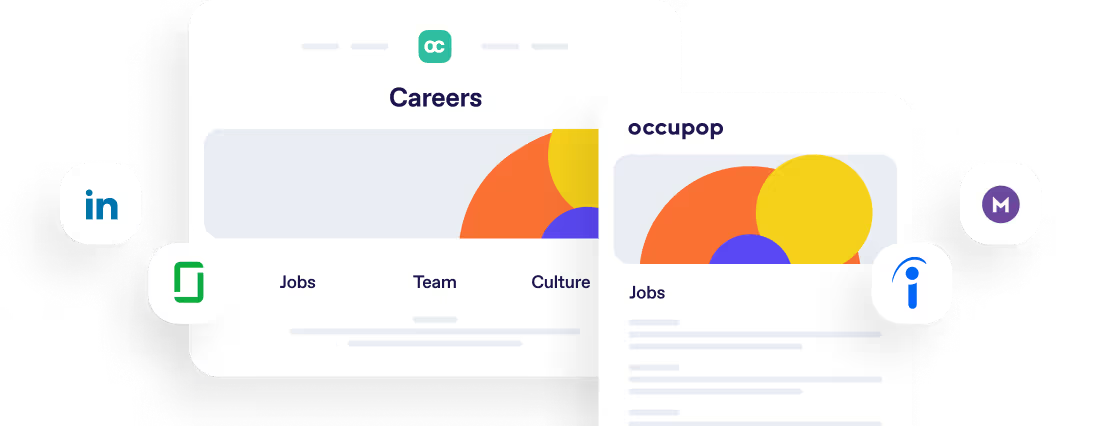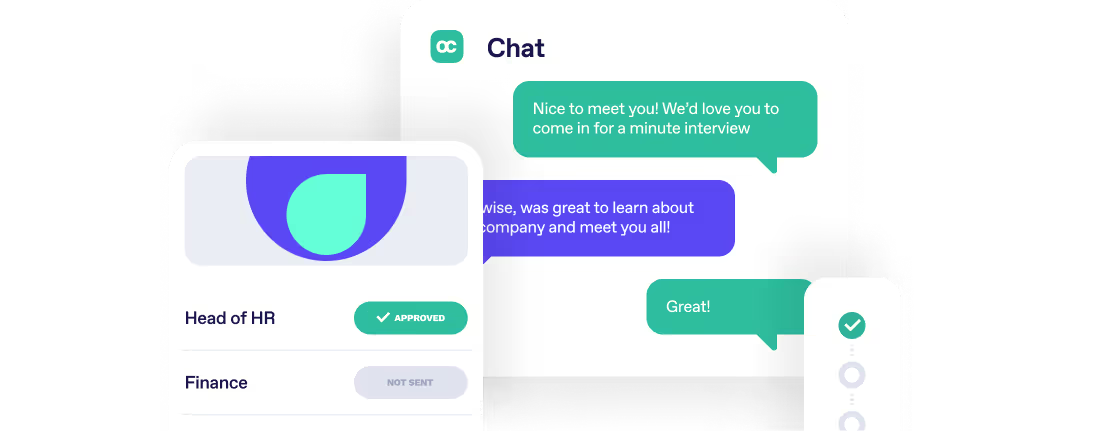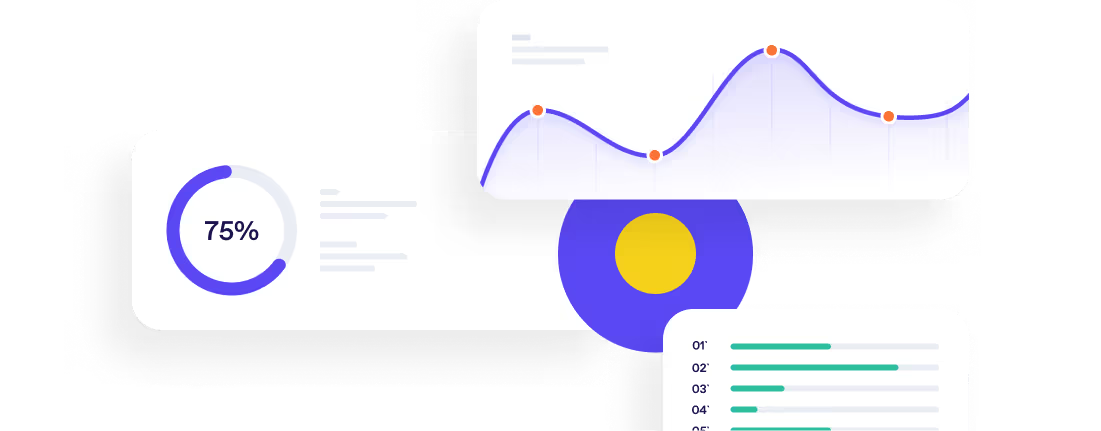Mastering the Art: Strategies for Becoming a Better Interviewer



In this comprehensive guide, we'll delve into key strategies and techniques to help you become a better interviewer and make more successful hiring decisions, ensuring you cover what to ask in an interview and how to choose the right candidate for a job.
Why is Effective Interviewing Important?
Effective interviewing serves as the foundation of successful recruitment. Beyond simply assessing candidates' qualifications, it's an opportunity to showcase your company culture, values, and brand. A positive interview experience can leave a lasting impression on candidates, regardless of the outcome, and contribute to your employer brand's reputation.

Key Skills for Interviewing Job Applicants
Listening and Engaging
Active listening is a crucial skill for any interviewer. It involves not just hearing what candidates say but truly understanding their responses and engaging with them on a deeper level. By asking thoughtful follow-up questions and showing genuine interest in their experiences, you can extract valuable insights into their capabilities and fit for the role.
Critical Thinking
Interviews provide an opportunity to assess candidates' critical thinking skills in real-time. As an interviewer, it's essential to evaluate not only the content of their responses but also the depth of their analysis and reasoning. Look for candidates who demonstrate a strong ability to problem-solve, think strategically, and adapt to new challenges.
Sharpen Your Selling Skills
It's crucial to recognise that in any interview, the interaction is not just a one-way assessment. While you assess whether candidates are the right fit for the job, candidates are simultaneously evaluating whether they want to work with you and your organisation. In this exchange, your ability to effectively sell your company and the job opportunity can significantly influence the candidate's decision-making process. Be prepared to talk about your company at length, this can include getting prepared to speak about the company mission, culture, what its like to work there, company values etc. will all come into this conversation.

How to Prepare for Interviewing a Candidate
Reviewing CVs
Before the interview, take the time to thoroughly review each candidate's CV or resume. Pay attention to their qualifications, experiences, and achievements, and consider how they align with the requirements of the role. Use this information to tailor your questions and probe deeper into areas of interest during the interview.
Creating Questions
Crafting well-crafted interview questions is essential for eliciting meaningful responses from candidates. Start by identifying the key competencies and skills required for the role, then formulate questions that allow candidates to demonstrate their abilities in these areas. Structured questions provide a framework for the interview and ensure consistency across candidates.
Efficient Time Management and Agenda Planning
To ensure a smooth and respectful interview process, it's essential to manage your time effectively and plan your agenda. Begin by allocating a buffer of at least 15 minutes before and after each interview to avoid keeping candidates waiting or rushing them out due to scheduling conflicts. This gesture not only demonstrates your professionalism but also shows that you value the candidates' time and attention. Furthermore, crafting a rough agenda for the interview is paramount. By outlining key discussion points and topics beforehand, you can guide the conversation more efficiently and ensure that all the important items are addressed in the interview.
Building Rapport when Interviewing Applicants
Setting the Tone
Creating a positive and welcoming atmosphere sets the stage for a successful interview. Greet each candidate warmly, introduce yourself and the interview process, and establish rapport from the outset. By putting candidates at ease, you encourage open and honest communication and create a more comfortable environment for sharing information.
INSERT-CTA
Providing Clear Information:
Transparency is key to building trust and credibility during interviews. Provide candidates with clear and accurate information about the role, company culture, and expectations. Address any questions or concerns they may have openly and honestly, and ensure they have all the information they need to make an informed decision about the position.
How to Handle Difficult Situations:
Addressing Difficult Questions
Difficult questions from candidates are an inevitable part of the interview process. When faced with challenging queries, remain calm and composed, and respond thoughtfully. If you're unsure about an answer, admit it honestly and offer to follow up later. Redirect the conversation to relevant topics to keep the interview on track.

Maintaining Professionalism
Maintaining professionalism is essential, even in difficult situations. Treat all candidates with respect and courtesy, regardless of their performance or suitability for the role. By upholding high standards of professionalism, you preserve the integrity of the interview process and leave a positive impression on candidates.
How to Choose the Best Candidate for a Job
After conducting interviews, the final step in the hiring process is arguably the most critical: choosing the right candidate for the job. This decision requires careful consideration and thorough evaluation to ensure that you select the individual who not only possesses the necessary skills and qualifications but also aligns with the values and culture of your organisation.
Assessing Skills and Qualifications
Begin by reviewing each candidate's skills and qualifications as demonstrated during the interview process. Consider how well their experiences and abilities match the requirements of the role. Look for candidates who not only meet the minimum qualifications but also demonstrate potential for growth and development within the position.
Evaluating Cultural Fit
Assessing cultural fit is equally important when choosing the best candidate. Consider how well each candidate's values, work style, and personality align with those of your organisation. Look for individuals who demonstrate a genuine interest in your company's mission and vision and who exhibit behaviours that reflect your organisation's culture.
Considering Team Dynamics
Take into account how each candidate would fit into your existing team dynamics. Consider factors such as communication style, teamwork abilities, and potential for collaboration. Look for candidates who not only possess the skills and qualifications required for the role but also complement the strengths and weaknesses of your current team members.
Reviewing References and Background Checks
Before making a final decision, conduct thorough reference checks and background screenings for each candidate. Reach out to previous employers and colleagues to verify the candidate's employment history, performance, and character. Additionally, conduct background checks to ensure that the candidate's qualifications and credentials are accurate and legitimate.
Considering Long-Term Potential
When selecting the best candidate for a job, it's essential to consider their long-term potential within your organisation. Look for individuals who not only meet the immediate needs of the role but also show promise for growth and advancement within the company. Consider factors such as career aspirations, willingness to learn and develop, and potential for leadership roles in the future.
INSERT-CTA
Consulting with Key Stakeholders:
Finally, before making a final decision, consult with key stakeholders within your organisation. Seek input from department heads, team members, and other relevant parties to gather diverse perspectives on each candidate. By involving others in the decision-making process, you can ensure that your final selection is well-informed and supported by the broader team.
In conclusion, mastering the art of interviewing is a multifaceted endeavour that requires preparation, effective communication, and sound judgement. By honing these essential skills and techniques, you can elevate your interviewing capabilities and make informed hiring decisions that benefit both your organisation and the candidates involved.
INSERT-LINE
Ready to streamline your hiring process and make better hiring decisions? Discover how Occupop can help you find and hire the best talent for your team a lot faster and more efficiently. Sign up for a free trial today!
Summary Points
Mastering Interview Techniques: Essential Strategies for Effective Hiring
- The Importance of Effective Interviewing: Beyond assessing qualifications, effective interviewing showcases company culture and values, leaving a lasting impression on candidates and contributing positively to the employer's brand.
- Key Interviewing Skills: Includes active listening to deeply understand candidates, critical thinking to evaluate their responses, and selling skills to present the company and role attractively to candidates.
- Preparation Steps for Interviewers: Involves thoroughly reviewing candidates' CVs, crafting tailored questions based on the role's requirements, and planning the interview agenda to manage time efficiently and address all key topics.
- Building Rapport: Essential for successful interviews, involving setting a welcoming tone, providing clear information about the role and company, and establishing a comfortable environment for open communication.
- Handling Difficult Situations: Interviewers should maintain professionalism when addressing challenging questions, ensuring respectful and thoughtful responses while preserving the integrity of the interview process.
- Choosing the Best Candidate: Requires a comprehensive evaluation of candidates' skills, cultural fit, team dynamics, and long-term potential, involving thorough reference checks and consulting with key stakeholders to make an informed decision.
Simple. Beautiful.
Recruitment Software.
HR updates sent straight to your inbox
You might also like...


Manage your entire hiring process simply, from engagement to management, hiring and onboarding







Simple. Beautiful.
Recruitment Software.
Recruitment Software.






